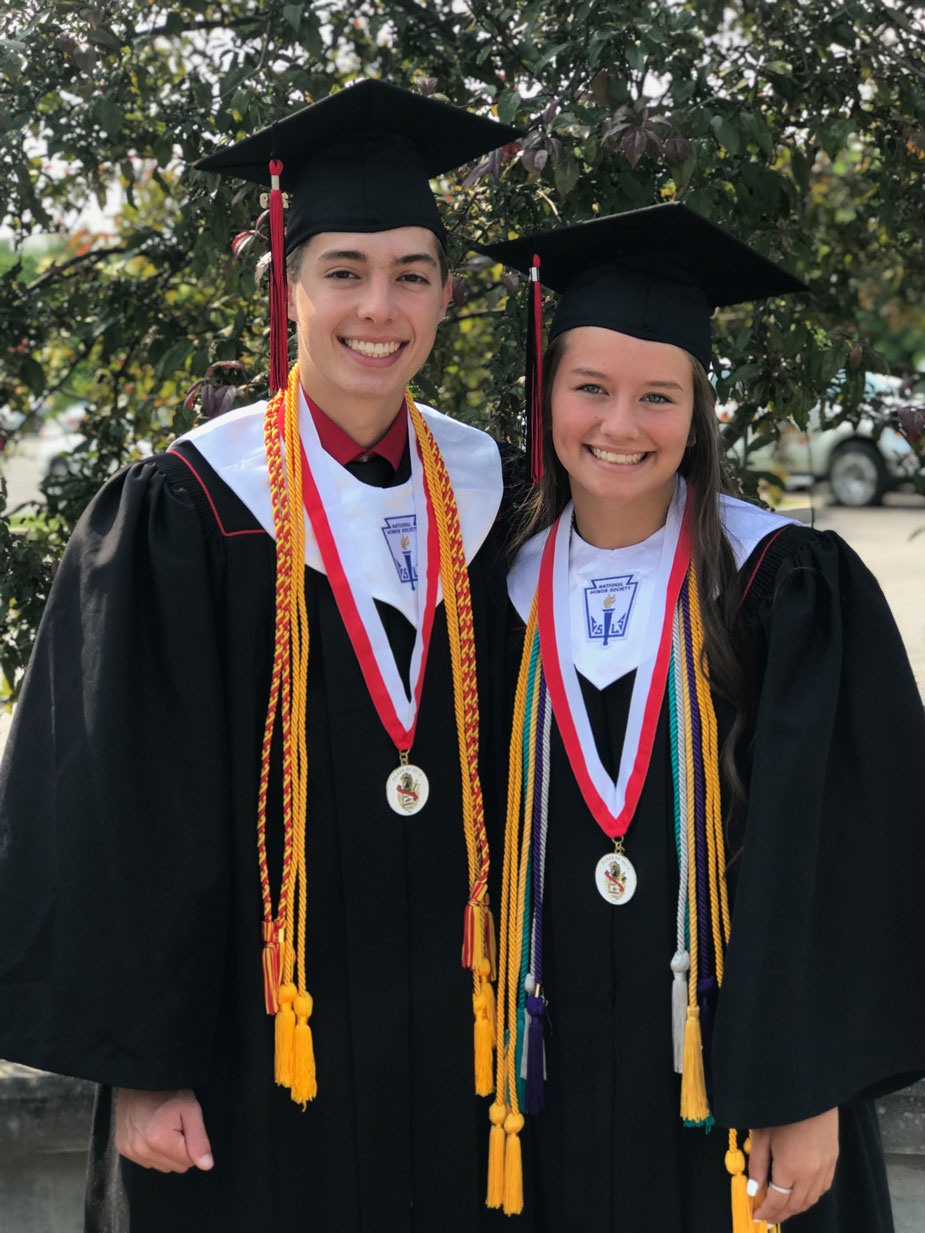
I was born and raised in Bloomington, Indiana where I attended Edgewood High School, a small school just outside the city.
During my time there, I was an active participant in National Honor Society, Spanish Honor Society and Spanish Club, and the cross country/track and field teams.
Given I had lived in Bloomington throughout my entire childhood, I knew I wanted my college experience to be somewhere different. Friends who were already attending IU Indianapolis frequently talked about the wealth of opportunities that came with attending college in a city like Indianapolis.
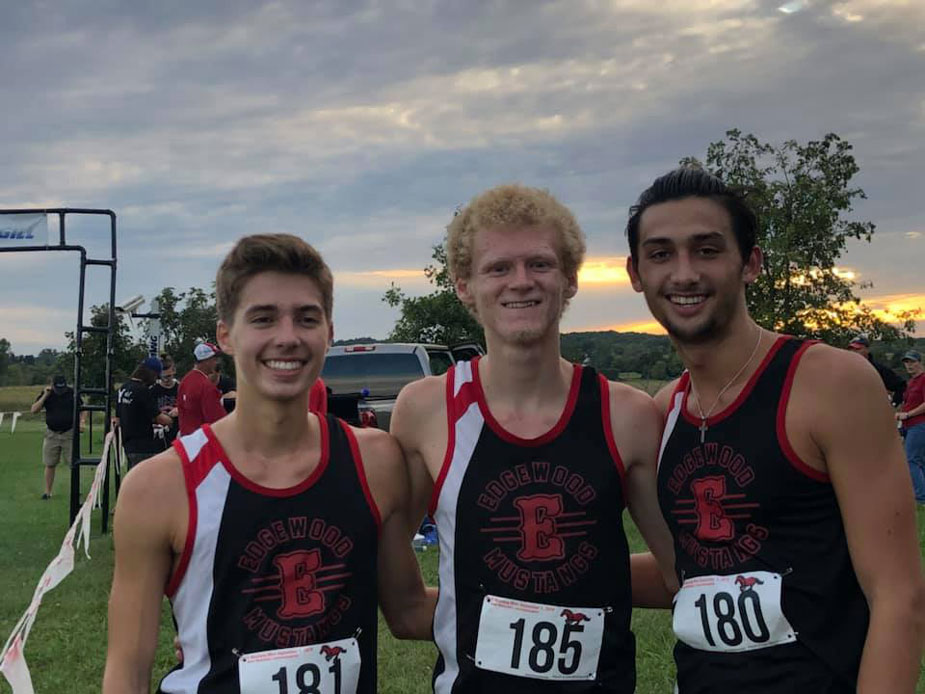
When I first visited campus and saw the mixture of traditional campus environment and unique proximity to the city center, I knew I'd found a home.
Starting at the School of Science
I had a great first semester transitioning to college life at IUPUI, thanks to both my academic advisor and my many professors. I made close friends during orientation and Summer Bridge, and built a strong, lasting friendship with one of my roommates while staying in University Tower.
I decided to study environmental science because as a child, I always looked forward to helping my dad with household recycling. I became much more aware of my ecological footprint during my high school years, leading to more conscientious efforts to reduce resource consumption and waste generation in my life. This lifestyle, along with my love for nature and the outdoors and Indiana University’s well known earth sciences department, made it easy for me to pursue an earth sciences degree.
Getting involved
Throughout my time at IU Indianapolis, I was a Peer-Led Team Learning (PLTL) leader for general chemistry, as well as a physics tutor. As a PLTL leader, I led weekly workshops for students in chemistry courses to review lecture material by working through problem sets in small groups. This experience helped break me out of my comfort zone, boost self-confidence and gain leadership skills.
Similarly, tutoring in the physics learning space had an equal effect, and both experiences significantly strengthened my knowledge in these subject areas. The best advice I learned from the PLTL team is that you’ve not mastered content until you can successfully teach it to someone else.
Internship success
Thanks to the Multidisciplinary Undergraduate Research Institute (MURI) program at the Center for Research and Learning on campus, I was fortunate to land an internship my first year on campus as a paleoclimatology lab intern for School of Science associate professor Dr. Broxton Bird. Working alongside fellow undergraduate, as well as graduate, students, my duties included subsampling from lake sediment cores, preparing samples for analysis and recording data.
Being able to frequently interact with Dr. Bird, graduate students and other faculty who contributed to the project provided a friendly and encouraging environment that allowed me to dive deep into the research. These experiences were some of the most valuable during my time at the School of Science and helped me gain valuable knowledge while honing important skills that benefited me through my college career.
I would strongly encourage all science undergrads to participate in research as soon as possible.
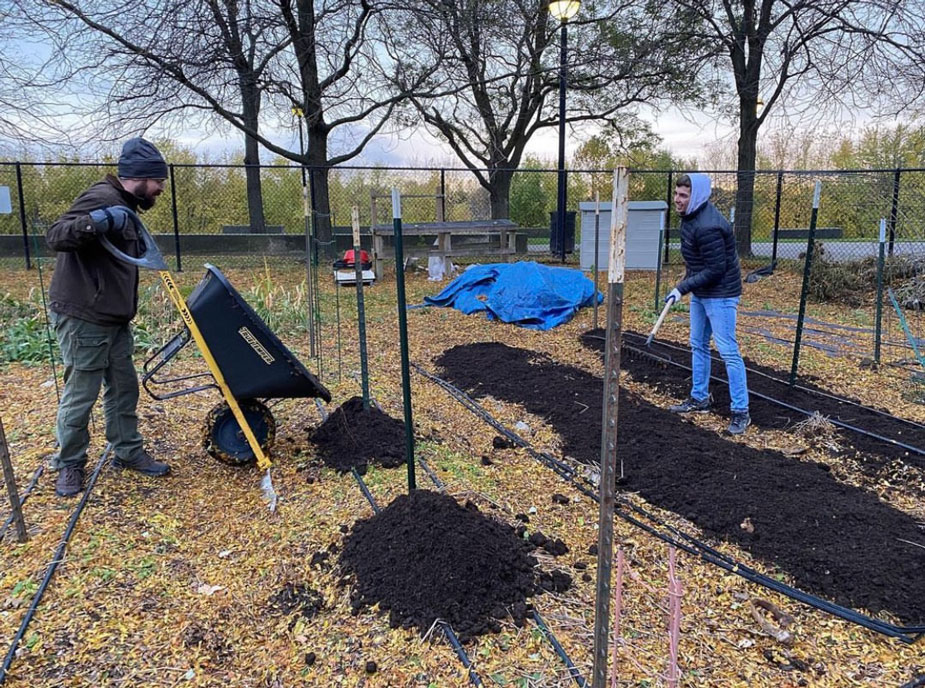
My favorite thing about getting my Environmental Science degree at the School of Science
The earth sciences department is one of the smallest in the School of Science, so it felt more like a family than anything else. The faculty were very welcoming and eager to teach, and it was easier to develop relationships with them due to the relatively small class sizes. I also shared several classes with many of my classmates, and those relationships made coming to class feel much more exciting and inviting.
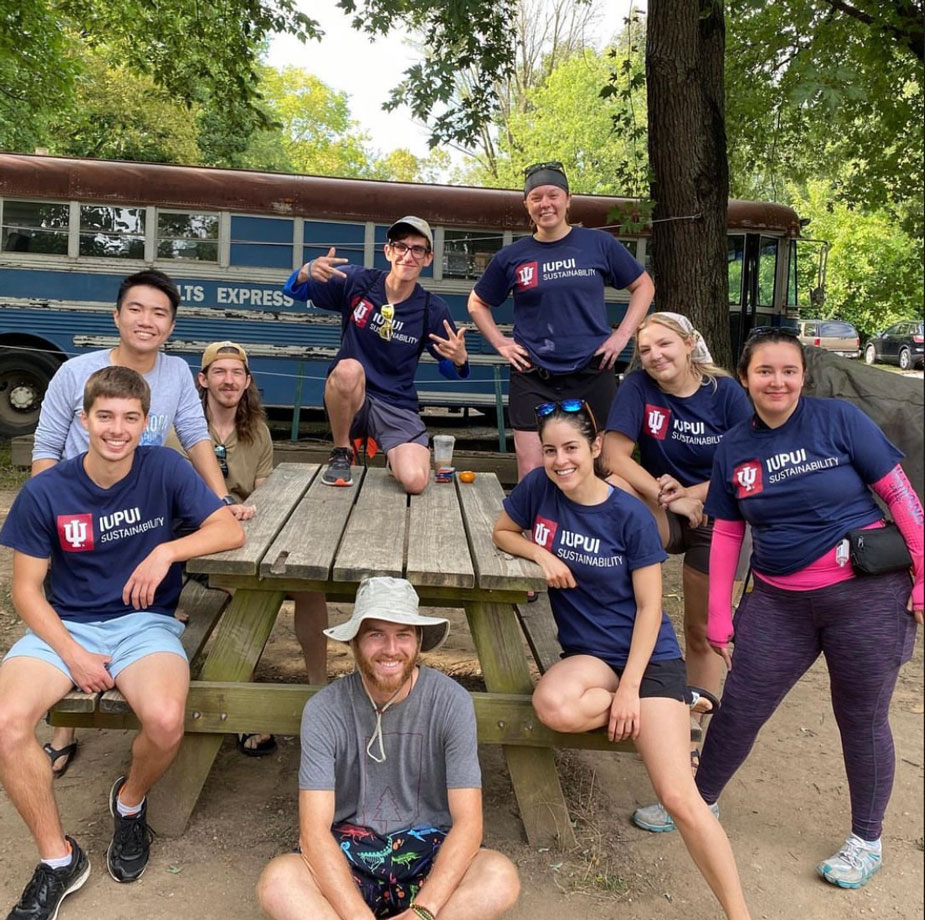
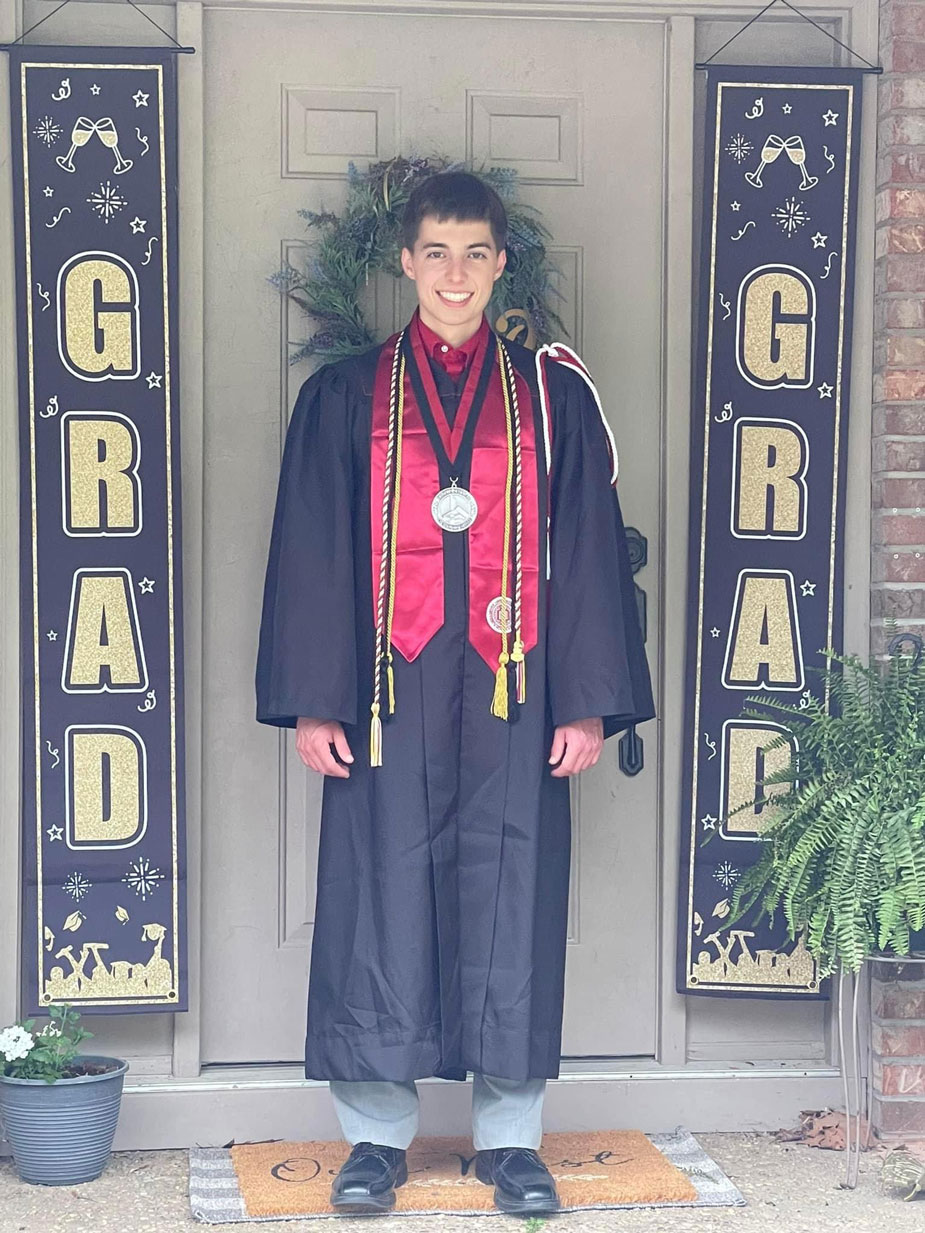
Starting my career at Cummins
With my degree concentration in geographic information systems (GIS) and remote sensing, the skills I gained from several of my college courses and various research projects, as well as the pre-professional experience I earned at the School of Science, helped me land a position at Cummins as a HSE (Health, Safety, and Environmental) associate after graduation!
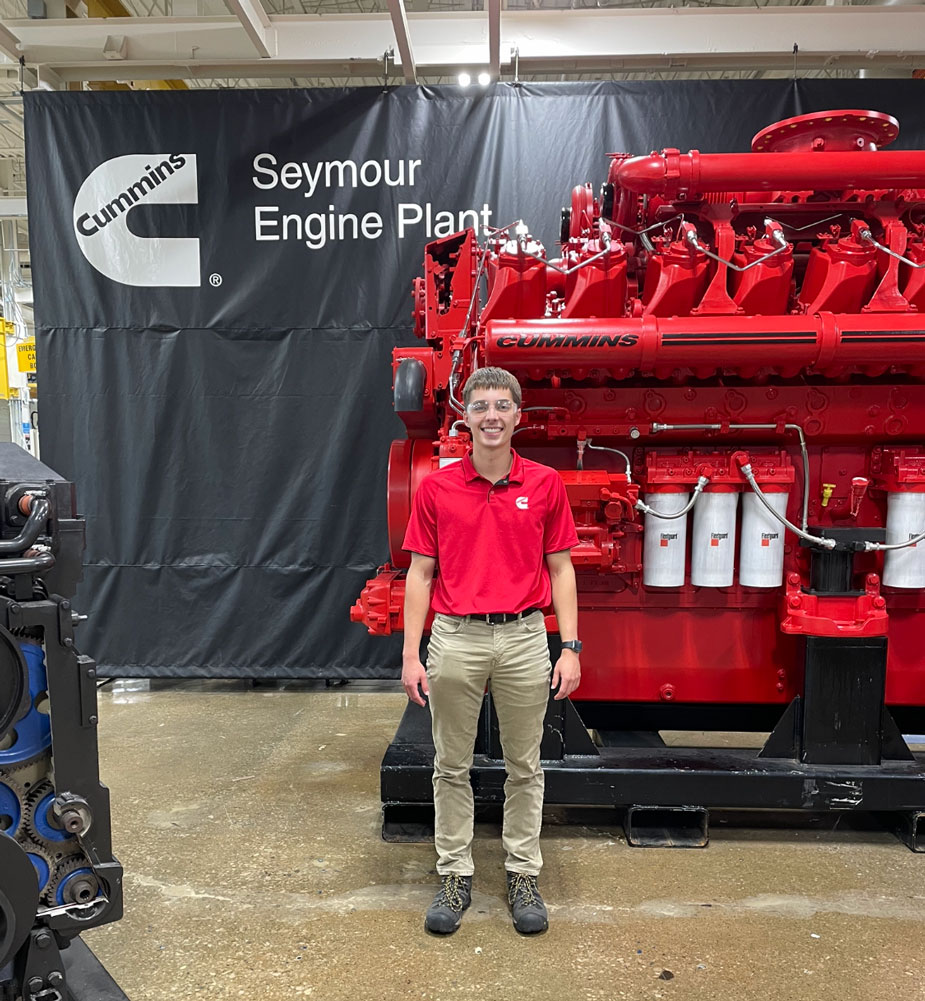
Some of my responsibilities include environmental compliance inspections, facility data (energy, water, waste) acquisition, and site database management. I also assist my supervisor with managing and tracking progress of sustainability projects at my site.
While I did not expect to begin my career as an HSE employee at a manufacturing facility, I have grown to enjoy the work that I do every day. My understanding of federal environmental regulations has grown extensively, and it excites me to see completed projects have a visible impact on energy/water usage and/or waste generation at my site!
My advice to current and prospective students: Get involved
For any student pursuing a science degree, get involved with research as early as possible. You will gain a wealth of valuable skills and experience you can highlight during interviews for graduate school or jobs.
For students pursuing an earth sciences degree, participate in fieldwork whenever possible. This work could include air/water/soil sampling, ecological restoration, and public environmental education. As an environmental professional, you are almost guaranteed to perform work that directly impacts human or environmental health on a daily basis. My job has required me to work outside in rain, snow, freezing cold and intense heat. Therefore, it’s important to experience this early and often to ensure your willingness to work in such conditions on a regular basis.
If you are struggling to find research opportunities on campus, ask your professors about their research. Showing a genuine interest in their work and a desire to gain hands-on experience will go a long way, even if you are volunteering a few hours a week to enter data in a spreadsheet or wash glassware in the lab.